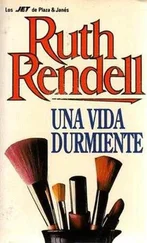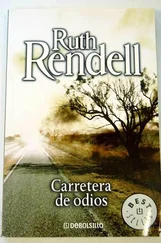A mammoth effort, a mammoth concentration, and a passable letter advising Mr. Coleman to consult a certain firm of Kenbourne Vale architects had been achieved. But as soon as he had done it and read it through, it struck him that if this reply came to the notice of Mr. Grainger he would be very displeased indeed. Mr. Grainger would expect him, while possibly mentioning the architects, to suggest that Grainger’s themselves would be happy to carry out the work. The displeasure of the whole world, of everyone who mattered, loomed before him. He gave a shuddering sigh. Another, and very different, letter must be composed.
Fresh sheets of paper were in the machine before Arthur realized the significance of the words he had spoken under his breath. Another, and very different, letter must be composed.…
16
————
For her letters H always used the same flimsy paper Grainger’s used for their carbon copies. And she used a similar typewriter to Arthur’s. Suppose he himself were to type a letter to Anthony Johnson and insert it in that mauve-grey envelope? The envelope would be the original one, the postmark and its date correct, and it could be placed on the hall table in good time for Anthony Johnson to find it. Only the contents would be different.
Arthur, who had spent half a day composing with fear and extreme care that note of apology, was appalled by the magnitude and the danger of the task. And yet the letter wouldn’t have to be a long one. His purpose, already half formulated, was to make it as short as possible. He could imitate H’s hysterical style—he had seen enough of it—and make the sort of errors she made, not depressing that key properly so that it made an eight instead of an apostrophe, depressing this one too long so that the second as well as the initial letter came out as upper case. And he could make the H with his own blue-black ballpoint pen.
He put two sheets of flimsy into the typewriter. The date first: November 21, and the O of November a capital as well as the N. Darling Tony—no, she wouldn’t call him darling for the kind of letter he meant to write. What would she call him? The only personal letters Arthur had written in his whole life were to a certain cousin of Auntie Gracie’s who had sent him five shilling postal orders on his birthdays. Dear Uncle Alfred, Thank you very much for the postal order. I am going to save the money up in my money box. I had a nice birthday. Auntie Gracie gave me a new school blazer. With love from Arthur . Dear Tony? In the end, not having the least idea whether people ever wrote that way, Arthur typed Tony . Just Tony .
How to begin? She was always asking him to forgive her. Forgive me . That was good, convincing. I’m sorry , he went on, taking care that an eight instead of an apostrophe appeared, not to have written to you before as I promised . Why hadn’t she written? I knew you would be angry if I said I couldn’t make up my mind . Good, he was doing well. But he must get on to the nub of it. I have made it up now and I am going to stay with Roger. I am his wife and it is my duty to stay with him . Arthur didn’t like that much, it wasn’t H’s style, but he couldn’t better it and still make her say what he meant her to say. There ought to be some love stuff. He racked his brains for something from the television or from one of those old films. I never really loved you. It was just infatuation . Now for the most important thing, the point of writing this letter that was primarily designed to put an end to all further communication between H and Anthony Johnson.
Barry loafed in just before one to say he had had his lunch and would be around to answer the phone while Arthur was out. It was still teeming with rain. Arthur put up his umbrella and set off for Trinity Road via the mews. He passed the spot where he had strangled Vesta Kotowsky, feeling a tickle of nostalgia and a fretful resentment against a society which had given him the need to commit such acts yet would condemn him with loathing for yielding to them.
The house was empty. Nothing on the table had been disturbed. Arthur checked that the flap of the mauve-grey envelope was securely gummed down, and then he placed it in the very centre of the glossy mahogany table.
The house was semidetached, with the uncluttered lines of sixties building, of pale red bricks with big windows to let in ample light. The family who had lived there since it was new had planted each January in its front garden their Christmas trees, and these Norway spruces, ten of them, stood in a row, each one a little taller than its predecessor. Anthony, as he left the house with Winston, thought of Helen and the delight she would have taken in those Christmas trees, seeing in their arrangement, the almost ritualistic placing of them, evidence of domestic harmony, quietude, and a sense of permanent futurity.
The street was very quiet, a cul-de-sac. Children could play there in safety. But there were no children playing now, for it was dark, dark as midnight at six o’clock.
“What d’you think?” said Winston.
“Very nice, if you’ve got twenty thousand pounds. But you’ll have to get married. It’s no place for a bachelor. You must get married, have children, and with luck you’ll be able to plant at least forty more Christmas trees.”
“Do I detect a note of sarcasm?”
“Sorry,” said Anthony. Viewing the house had made him bitter. It wasn’t his ideal, too bourgeois, too dull, too sheltered, and yet—could you find a better place in which to build a marriage and raise a family? Relationships are hard to come by, and one woman may make a man very discriminating, very selective. He saw his youth wasted in hanging after Helen, their dream children vanishing in their dream mother’s vacillations.
Winston said, “I think I shall buy it. I shall come and live here among the nobs.” He pointed as they turned the corner to a grander street. “Caspian lives in one of those minimansions, and all made out of grinding our faces.”
They walked towards the K.12 stop. A thin, cold drizzle was falling. It laid a slimy sheen on pavements and on the darker tarmac of the roadway, which threw back glittering yellow and red reflections of lamps. The neighbourhood changed abruptly as London neighbourhoods do. Once again they were among the tenements, the dispirited rows of terraced cottages without gardens or fences, the corner shops, the new housing blocks.
“You can always tell council flats by the smallness of their windows,” said Anthony. “Have you noticed?”
“And their hideous design. It comes of giving second-rate architects a chance to experiment on people who can’t afford to refuse.”
“Unlike lucky you.”
“In a filthy temper tonight, aren’t you? Excuse me, I’m going in here to get a paper.”
Anthony waited at the door. What was happening to him that he could be rude and resentful to this new friend he liked so much? He stood in the now fast-falling rain, feeling depression settle on him. Friday night, Friday, November 22. He had to get through another five days of this, five days till the last Wednesday of the month. But then he would phone her, certainly he would. He thought of her face that he hadn’t seen for two months. It appeared before his eyes like a ghost face in mist, delicate, sensitive, contrite, wistful. The last time he had made love to her—he remembered it now, her eyes open and watching his eyes, her smile that had nothing to do with amusement. To have that again, even impermanently, even deferred, wasn’t it worth sacrificing his pride for that, his ideal of himself as strong and decisive, for that? Yes, on Wednesday he would beg and persuade all over again, he would begin again.…
Читать дальше











